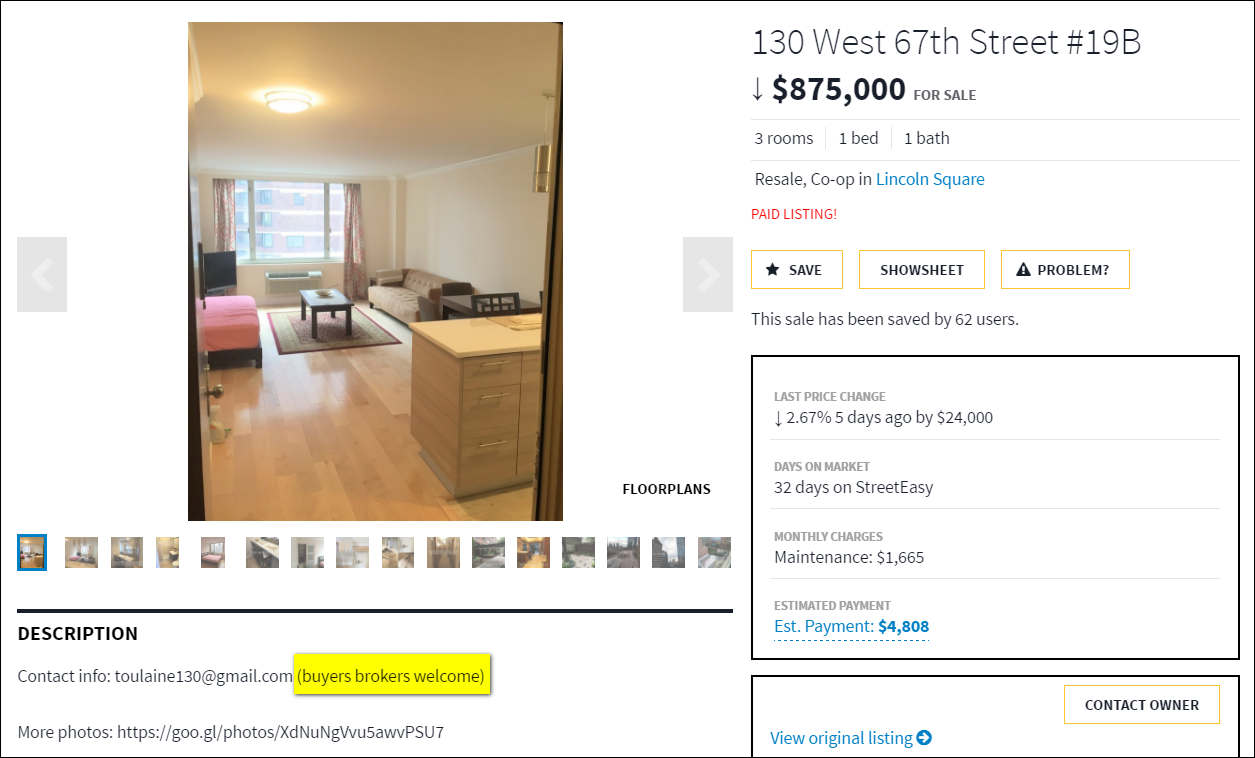One of the most complex aspects of being a real estate agent is managing your paycheck. As opposed to other, traditional businesses in which you go to work and get a steady paycheck, being a real estate agent or broker is much different. That’s because you are working on real estate commission, so you only get paid when you are involved in the transaction — selling or buying a property. And, your commission check does not always come to you immediately after closing, so prepare for days and weeks of “salary down time.”
How a Brokerage Makes Money
First, let’s take a look at how a brokerage firm gets paid and in turn, how they pay you. In a related piece, we’ll look at agent salaries, splits and more.
A brokerage firm can make money in different ways. On a sales transaction, the firm might:
- Charge sellers to sell a property;
- Charge buyers to help them find a property (rarely, but it can happen);
- Receive a co-operating commission (known informally as a “co-broke”) for bringing a buyer into a sales transaction.
On a rental transaction, the firm might:
- Charge landlords to help rent a property;
- Charge a tenant to find a property.
What is the ‘Standard’ Commission Amount?
According to the NYS Department of State, which licenses real estate agents, commissions are always negotiable. While 6 percent has been the “standard’ amount that brokerages charge for sales properties, in 2013, the national average was 5.38 percent, according to a Real Trends study cited by Kenneth R. Harney in the Los Angeles Times. And certainly in NYC, the numbers can swing higher or lower than that.
What you, as an agent can negotiate as a sales commission depends on the market. Mainly, are you selling a property in a hot market or a cool one? Other factors, according to Jonathan A. Wiley, Justin D. Benefield, and Marcus T. Allen, professors who have studied commission rates, include the difficulty of selling a particular property and the market share of the brokerage firm.
For the firm’s part, it might want to charge a lower commission to the seller in a geographic area where it wants to develop new business (i.e., a Manhattan brokerage is opening an office in Brooklyn for the first time) and a higher commission to sell a type of property that is not its normal specialty (i.e., a firm that specializes in townhouses takes on an apartment listing).
First and foremost, be aware of your firm’s procedures. For example, if you work for a large firm, you might negotiate a commission with a client and then require the approval of your manager before he or she will sign off on the agreement. Also, if you’re drawing up a listing agreement, don’t forget to include a date that the agreement begins and a fixed date that it ends.
Working With REBNY Member and Non-Member Firms
Firms that are members of REBNY, the Real Estate Board of New York, sign on to an agreement that covers co-brokerage between all REBNY member firms. If you’re dealing with a non-REBNY firm, or if you’re bringing a buyer to a new development, it’s your responsibility as an agent to make sure you understand how to get paid if you bring in the buyer, how much you would get paid, and what paperwork would be necessary to make that happen.
On the buy side, while buyer’s brokers can be paid directly by their clients, in many cases in New York City, the buyer’s brokerage commission is paid by the seller. The amount that is offered to the buyer’s side for bringing in a buyer can be listed in the property’s ad or in its online listing. Often the split is 50-50, but that isn’t always the case. This is a complex issue and if it’s a REBNY co-brokered agreement, then the selling firm has to offer at least half.
A property that is For Sale By Owner (FSBO), might advertise “brokers protected” or “buyer’s brokers welcome” (photo below). This means the FSBO seller will pay commission to the broker who brings a buyer. Commission can be about 2-3 percent of the sold price.
If a property is listed by a brokerage, the amount offered to the buyer’s broker is usually in the listing. In the REBNY Listing System, for example, the percentage commission offered to the buyer’s broker is a part of the listing, just like the price or the room count.
 Before You Show Another Firm’s Listing…
Before You Show Another Firm’s Listing…
The most important thing to remember is that you want to clear up the amount you would get paid, and the procedure for getting paid, BEFORE you show another brokerage’s listing! Some websites have disclaimers. For example, Halstead in its “Scope of Use” states: “Any real estate broker who uses an individual Listing for its customer must first enter into Co-Brokerage Agreement or Referral Agreement with Broker.”
If you’re showing a new condo, you might need to have your sponsoring broker execute a new development co-brokerage agreement. It’s always better to take a few minutes to check beforehand, than to have your client fall in love with a property, but realize you’ve found a listing agent who doesn’t want to co-broke.
When You Receive Your Commission
So what does it mean to earn a commission? Rookie agents, who may have the fantasy of bringing a buyer into seeing a pretty apartment and then cashing a paycheck, will quickly learn that it’s not that easy. In new development agreements, commission is generally considered earned after a purchase agreement is signed and the client pays for the unit at a closing. In other agreements, the standard is to produce a “ready, willing and able” buyer, as this piece from the Office of the General Counsel of the Department of State explains. It should be defined in each listing agreement when the seller pays commission. In terms of apartment sales, it’s usually after the buyer closes (after obtaining financing and co-op or condo building approval). Therefore, smoothing the path to a mortgage and a board approval is a large part of a buyer’s broker’s job.
Once you’ve sailed to a closing and your brokerage firm has collected its money, make sure you get your share from the firm.
Next up: How the firm pays you.








